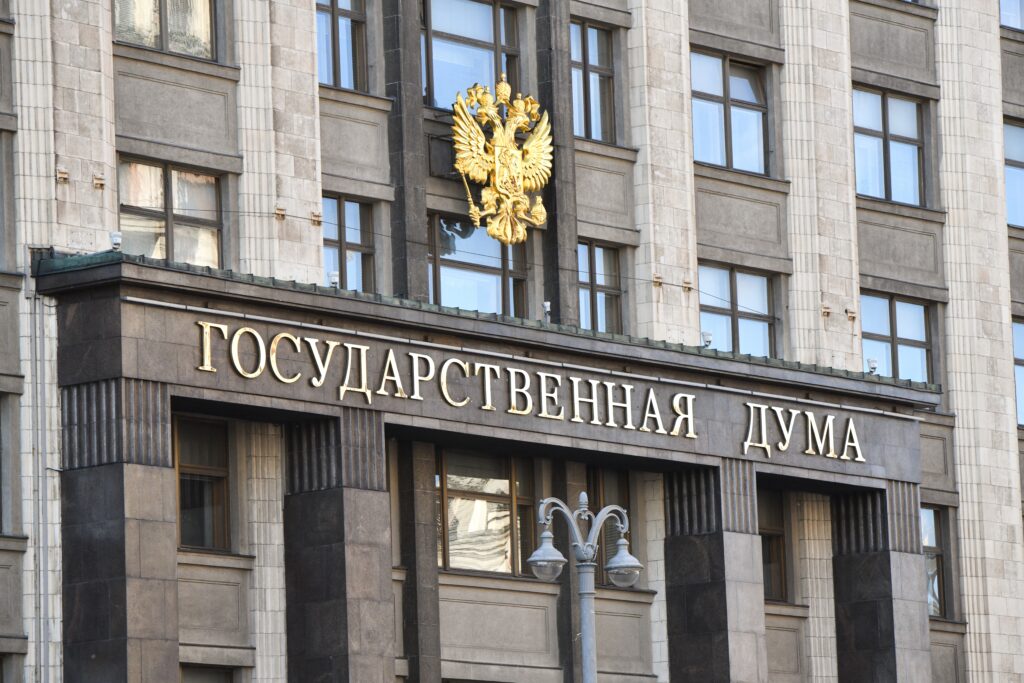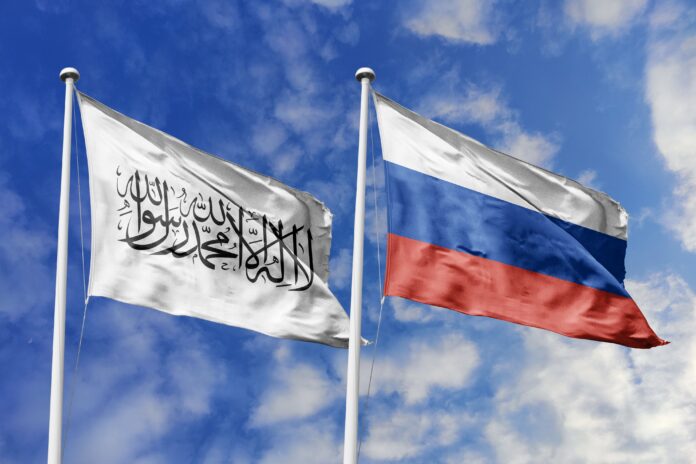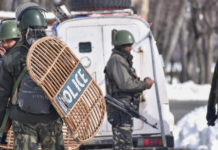Russia has taken the first step towards recognising the Islamic Emirate of Afghanistan after its parliament approved a bill that could potentially remove the Taliban from Moscow’s list of banned terrorist organisations.
This legislative step by the lower house (the Duma) is seen as a precursor to formal recognition, signaling a shift in Moscow’s stance toward the de facto rulers of Afghanistan.
Domestically, the bill must pass through two more readings in the Duma and gain approval from the Federation Council and the President.
Vladimir Putin, Russian President, said: “We must proceed from the fact that the Taliban controls power in the country. In this sense, the Taliban are certainly our allies in the fight against terrorism because any acting government is concerned with the stability of its administration and the state it.”
Sergey Lavrov, Russia’s Foreign Minister, added: “The Taliban, by the way, they are not, as an organisation, on the UN terrorist list. Several leaders of the Taliban are on the personal terrorist list.”
Analysts say that Russia has been increasingly concerned about the growth of “Islamist militant groups” along its southern borders, including the Afghan branch of ISIS (ISIS-K) which has been linked to attacks within Russia.
By engaging with the IEA, Moscow aims to mitigate these threats by fostering a more stable neighbour committed to “fighting terrorism.”
Subscribe to our newsletter and stay updated on the latest news and updates from around the Muslim world!
And with relations with the West deteriorating, Russia is also seeking to strengthen its influence in Central Asia, an area traditionally within its sphere of influence. Recognising the IEA could position Russia advantageously in regional power dynamics, especially if it can secure economic and trade agreements or access to Afghan resources.

From Afghanistan’s point of view, they are seeking to end their international isolation and are seeking economic partnerships and visa facilitations.
Russia has traditional had strained relations with Afghanistan which date back to the Soviet-Afghan War, which began with the invasion in December 1979 to support the Communist government against growing insurgency.
The conflict, which lasted until 1989, left deep scars on both nations but also laid the groundwork for subsequent diplomatic relations. After the Soviet withdrawal, relations fluctuated, with moments of cooperation and tension, especially during the U.S.-led war in Afghanistan post-2001.
No country has officially recognised the Islamic Emirate of Afghanistan as the legitimate government of Afghanistan since the Taliban’s takeover in August 2021.
Western powers say they have human rights concerns related to restrictions on women’s rights, including bans on education for girls beyond primary school, restrictions on women’s employment and mobility.
Other excuses include:
- Concern over the Taliban’s past associations with groups like al-Qaeda.
- The government formation has been criticised for not being inclusive, lacking representation from various ethnic and political groups in Afghanistan.
- The international community generally adheres to principles like non-recognition of governments established through military coups or non-democratic means without broad acceptance or negotiation for peace.
That said, some countries like China, Russia, Iran and several others have engaged with IEA representatives at various levels (e.g., accepting Taliban-appointed diplomats as chargés d’affaires), but this engagement does not equate to formal diplomatic recognition.
China, for instance, recognized a Taliban envoy but still does not recognise the IEA as the legitimate government.
Despite this, there are indications of softening stances, with some countries allowing Taliban diplomats to function in a limited capacity, suggesting pragmatic engagement while withholding official recognition pending significant reforms in governance, human rights, and security.























